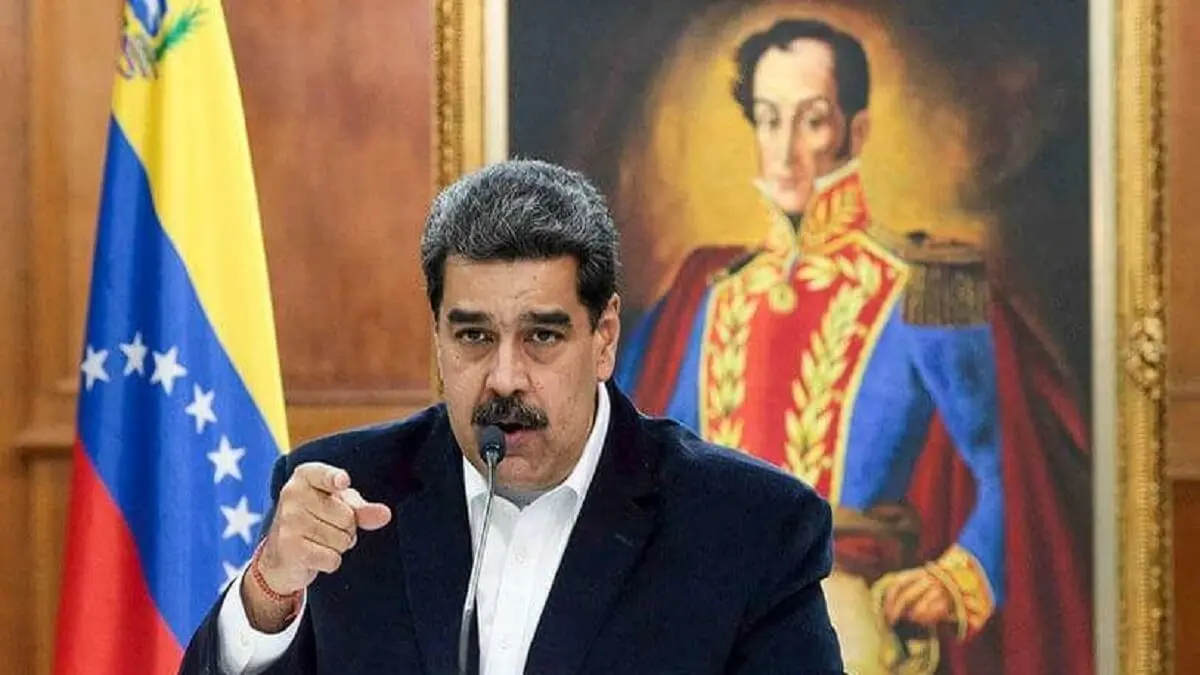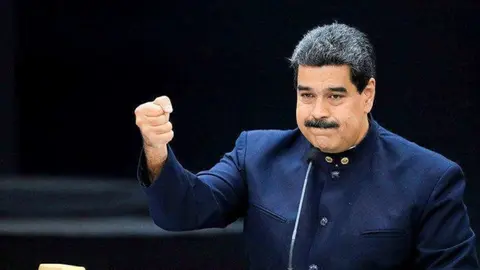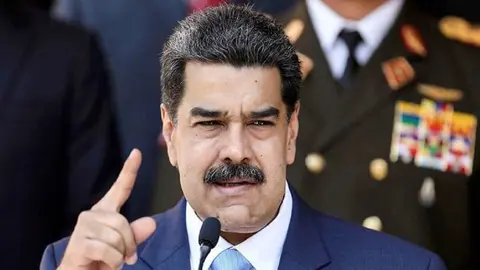US reimposes sanctions on Venezuela, Maduro to do his own thing

As is well known, Washington kept its side of the bargain. President Nicolás Maduro did not, and he proceeded to step up his harassment, bullying and persecution of the entire democratic opposition, a harshness that increased as soon as the primary elections of the opposition as a whole unanimously established María Corina Machado as its candidate, whom the polls soon gave a landslide victory in her future head-to-head confrontation with Nicolás Maduro, who aspires to prolong his stay in the Miraflores Palace in Caracas for another six years.
One after another, the seven members of Machado's team were boycotted, arrested and soon charged with all sorts of crimes, both to prevent them from campaigning and to prevent the face-to-face with Maduro from happening. The chavista tyranny wielded a capricious disqualification of María Corina Machado from standing in the elections on 28 July. An administrative punishment that Caracas interposes every time someone dares to try to make Venezuela resemble anything resembling a democracy.
Now, the United States, which seems convinced that the Caracas regime takes it for granted, has made good on its threat to reimpose sanctions against the Venezuelan oil and gas sectors. State Department spokesman Matthew Miller said in his statement that he was concerned that "Maduro and his proxies have prevented the democratic opposition from registering the candidate of their choice, harassed and intimidated political opponents, and unjustly detained leaders and many members of civil society".
Despite the harshness of such a preamble, the US grants a new opportunity for rectification by appealing "again to Maduro to allow all candidates and political parties to participate in the electoral process and to release all political prisoners". The latter number 269 people, according to the NGO Foro Penal.
To date, it does not seem that Washington's communiqué is going to change things in Venezuela. Maduro and his henchmen know that if they ease their brutal level of repression, the regime will fall. Moreover, his allies in the Puebla Group and the Sao Paulo Forum are encouraging him to continue his resistance, even if from time to time they slip in some small-mouthed criticism of an exaggerated excess in his repressive measures, calling them at best 'undemocratic' (Lula and Petro).
The now reimposed sanctions had been put in place in 2019 with the aim of removing Maduro from power after his re-election in 2018, considered "illegitimate" by the United States and fifty other countries, which went so far as to recognise Juan Guaidó as the "legitimate president" of Venezuela instead.
Five years on, both the US and many other sanctioning governments recognise not only that the regime is still standing, but also that it has circumvented the effects of sanctions by concluding unspoken but obvious deals with the best of global geopolitics, namely Russia and Iran, making it a potentially even more dangerous enemy.
Many of those countries and institutions that once supported the sanctions are now trying to find a conciliatory path. This is demonstrated by the EU delegation, which is already working in Caracas to be admitted as an "observer" of the 28 July elections. A UN panel of experts and a mission from the US Carter Center will also be in Caracas this April.
It does not seem too risky to think that such observers will make much of a dent in the regime. Pedro Tellechea, the current Minister of People's Power for Petroleum, has been the first to react dismissively. "The [reimposed] sanctions will not have the slightest effect on our economy, whose stability is guaranteed to the maximum".
It is clear that in such words neither the economic and political exile of the eight million Venezuelans who have fled the country, nor the current levels of poverty that exceed 90% of the population, count for anything. A situation that of course does not affect the very affluent and wealthy core of the chavista-madurista regime.



